Aldec
-
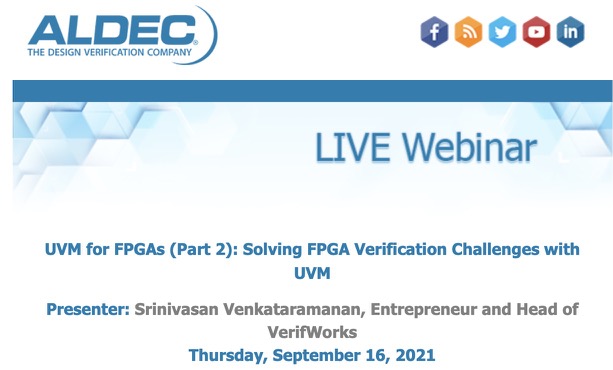
UVM for FPGAs (Part 2): Solving FPGA Verification Challenges with UVM
Abstract: Today’s FPGAs have become larger in logic density and can handle complex designs with multi-million system logic cells. The traditional verification techniques of simple simulations combined with a detailed validation in the lab simply do not scale up any longer. Even to map a large logic design to a modern-day FPGA takes many hours.… UVM for FPGAs (Part 2): Solving FPGA Verification Challenges with UVM
-
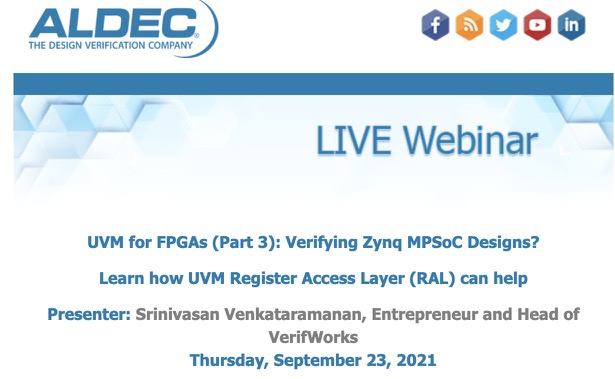
UVM for FPGAs (Part 3): Verifying Zynq MPSoC Designs?
Learn how UVM Register Access Layer (RAL) can help Presenter: Srinivasan Venkataramanan, Entrepreneur and Head of VerifWorks Thursday, September 23, 2021 Abstract: The use of highly configurable IP-based designs have become the norm in the SoC era. Modern SoC designs targeting Xilinx® Zynq Ultrascale+ MPSoC include an extensive list of standard embedded IPs and custom… UVM for FPGAs (Part 3): Verifying Zynq MPSoC Designs?
-
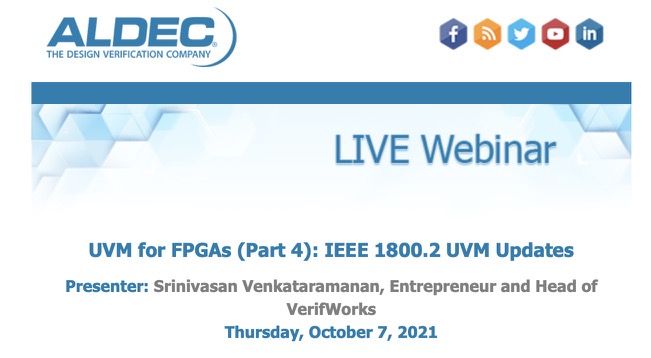
UVM for FPGAs (Part 4): IEEE 1800.2 UVM Updates
Abstract: Started with an early adaptor release as Accellera 1.0a, UVM has evolved into few significant versions including UVM 1.1 and UVM 1.2. As with many popular useful standards, UVM has attained the coveted IEEE standardization in 2017. Interestingly, UVM is the first verification methodology to be standardized, and the current version is IEEE 1800.2-2020.… UVM for FPGAs (Part 4): IEEE 1800.2 UVM Updates
-
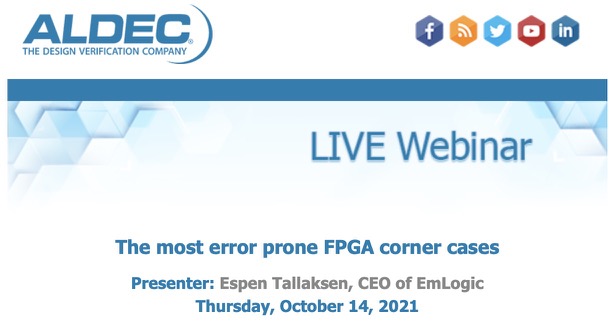
The most error prone FPGA corner cases
Presenter: Espen Tallaksen, CEO of EmLogic Thursday, October 14, 2021 Abstract: Cycle related corner cases are probably the worst and main reason for undetected bugs on many FPGAs. To explain this in a simple way, - a cycle related corner case is for instance if you have an event counter where the number of counted… The most error prone FPGA corner cases
-

Using OVL for Assertion-based Verification of Verilog and VHDL Designs
Open Verification Library (OVL) is a library of property checkers for digital circuit descriptions written in popular Hardware Description Languages and maintained by Accelera. The OVL checkers could be used not only in dynamic simulation, but also in formal verification and emulation. Also, the OVL-based verification technology provides the easiest way for designers to implement… Using OVL for Assertion-based Verification of Verilog and VHDL Designs
-
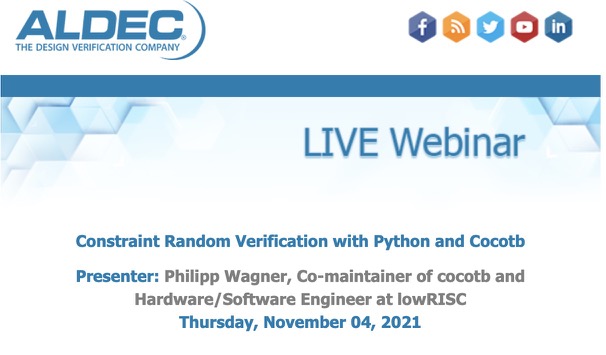
Constraint Random Verification with Python and Cocotb
Abstract: Testing digital hardware has never been an easy job, and it won’t get easier any time soon. But that doesn’t mean writing test code can’t be enjoyable and productive! Cocotb, an approach to use Python as verification language, is bringing the joy back to verification. It allows developers to start with small, directed testbenches,… Constraint Random Verification with Python and Cocotb